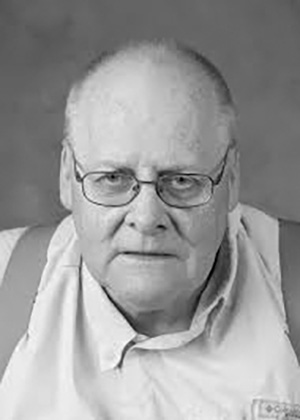By Greg Markley
My regular readers know I oppose “Fake News:” stories and comments that are easily found to be false. Look up three to five things a public figure said. If you find out 30% or more of what he or she said is inaccurate, you will know they are lying. Tweets, too, are often misleading, as an infectious disease specialist at East Alabama Medical Center wrote in an EAMC publication.
Dr. Ricardo Maldonado explained that one tweet mislead the public about COVID-19 deaths. It noted startlingly that, “CDC quietly updated the COVID number to admit that only 6% of all the 153,504 deaths (at that time) recorded actually died from COVID.” My take: A probable reason for the inaccurate tweet was to downplay the seriousness of the pandemic, to benefit certain politicians.
“Let’s start with this knowledge,” Maldonado wrote. “Any person who dies from an acute illness will have comorbidities listed as contributing conditions on their death certificate. For example, if someone dies from a stroke, the death certificate will list other comorbidities, which will likely be hypertension, diabetes, chronic kidney disease, etc. However, the acute illness that caused the death was still the stroke.”
He added: “Any other acute illness that leads to death (myocardial infarction, bacterial pneumonia, sepsis, etc.) will frequently have other contributing factors, but undoubtedly it was the acute illness that took the patient’s life.” Maldonado has been at EAMC since 2009 and leads the clinical response to COVID-19.
The Centers for Disease Control and Prevention report showed that 94% of COVID-19 deaths had other diagnoses as contributing conditions. Thus, as Maldonado said, “The deleted tweet was false, mis-informative, only creates confusion and ends up dividing our country further during a pandemic. Not good.”
Did a CDC clerk misread his or her notes and issue a tweet that was backwards in its figures, but not meant to misinform? That’s unlikely, because the Center is known worldwide for its probity and accuracy. Was someone in Washington D.C. part of this, to make voters think this virus was no big thing, with a direct role in only 6% of the pandemic’s U.S. deaths? It would not surprise me. We are fortunate to have Maldonado at EAMC for his wise counsel.
Another hero in the same field is Dr. Anthony Fauci, director of the National Institute of Allergy and Infectious Diseases. Fauci has served six U.S. presidents—four Republicans and two Democrats. Kentucky’s junior U.S. Sen. Rand Paul was just 21 when Fauci became director in 1984. Before entering politics, Paul was an ophthalmologist, but somehow he thinks he is an expert on immunology. Or that is how it appeared in a sharp exchange between Fauci and Paul.
Paul argued at a Senate meeting that the lockdown and mitigation measures for COVID-19 did not work well and that “our death rate is essentially worse than Sweden’s,” although that country did not take bold measures to curb virus transmissions. Fauci challenged the comparison between the U.S. and Sweden and said Sweden has a higher death rate than other comparable Scandinavian nations.
The United States has a long history of anti-intellectualism and skepticism toward new theories of science. We need to be careful when we discount a true expert in his field, like Fauci. Don’t accept anyone who has a medical degree, even an eye doctor and U.S. senator, as being expert in all medical areas.
At a White House press briefing on the virus, a cardiologist not especially trained in infectious disease boasted of having cures for the virus. His name: Mehmet Oz, a Turkish-American doctor and daytime TV star who promotes pseudo-science medicines. How he was at a prime-time White House briefing while some infectious disease scientists were sidelined is beyond me.
Another strange choice for a briefing in front of the president of the United States during a crisis was when Mike Lindell was there to announce he was making and donating masks to health care workers. In 2005, Lindell founded the My Pillow Company in Minnesota. It is a true American success story. Yet this event should have been a simple photo op somewhere. In a crisis the focus should always be on the pandemic and not TV personalities.
“Fake News” is a monster plaguing our civic life. “Fake Tweets,” as Maldonado has discovered, also must be guarded against. When the Internet and social media began, many people said we would get “too much information, and not enough time (to figure it all out).” That remains true, and that is why I say caveat emptor.
Greg Markley has lived in Lee County for 20 of the last 24 years. An award-winning journalist, he has master’s degrees in education and history. He taught political science as an adjunct in Georgia and Alabama.


